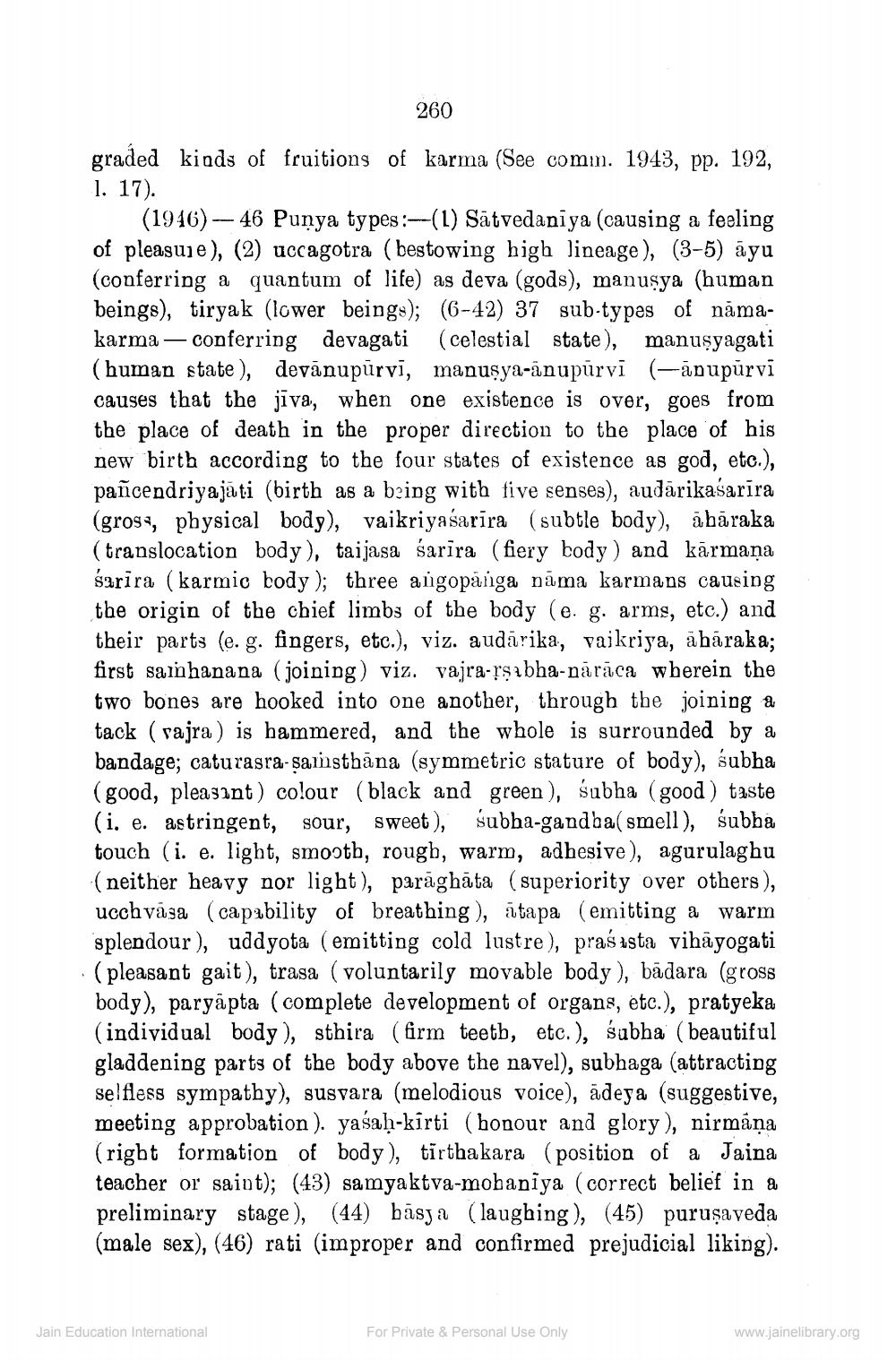________________
260
graded kinds of fruitions of karma (See comm. 1943, pp. 192, 1. 17).
(1946) 46 Punya types:-(1) Satvedaniya (causing a feeling of pleasure), (2) uccagotra (bestowing high lineage), (3-5) ayu (conferring a quantum of life) as deva (gods), manusya (human beings), tiryak (lower beings); (6-42) 37 sub-types of namakarma conferring devagati (celestial state), manusyagati (human state), devānupūrvi, manusya-anupurvi (-anupūrvi causes that the jiva, when one existence is over, goes from the place of death in the proper direction to the place of his new birth according to the four states of existence as god, etc.), pañcendriyajati (birth as a being with five senses), audarikasarira (gross, physical body), vaikriyasarīra (subtle body), aharaka (translocation body), taijasa sarira (fiery body) and karmana sarira (karmic body); three angopanga nama karmans causing the origin of the chief limbs of the body (e. g. arms, etc.) and their parts (e. g. fingers, etc.), viz. audarika, vaikriya, āhāraka; first saihanana (joining) viz. vajra-rsabha-nāraca wherein the two bones are hooked into one another, through the joining a tack (vajra) is hammered, and the whole is surrounded by a bandage; caturasra-samsthana (symmetric stature of body), subha (good, pleasant) colour (black and green), subha (good) taste (i. e. astringent, sour, sweet), subha-gandha (smell), subha touch (i. e. light, smooth, rough, warm, adhesive), agurulaghu (neither heavy nor light), paraghata (superiority over others), ucchvása (capability of breathing), atapa (emitting a warm splendour), uddyota (emitting cold lustre), prasasta vihayogati (pleasant gait), trasa (voluntarily movable body), badara (gross body), paryapta (complete development of organs, etc.), pratyeka (individual body), sthira (firm teeth, etc.), subha (beautiful gladdening parts of the body above the navel), subhaga (attracting selfless sympathy), susvara (melodious voice), adeya (suggestive, meeting approbation). yaśaḥ-kirti (honour and glory), nirmana (right formation of body), tirthakara (position of a Jaina teacher or saint); (43) samyaktva-mohaniya (correct belief in a preliminary stage), (44) basya (laughing), (45) purusaveda (male sex), (46) rati (improper and confirmed prejudicial liking).
Jain Education International
For Private & Personal Use Only
www.jainelibrary.org




